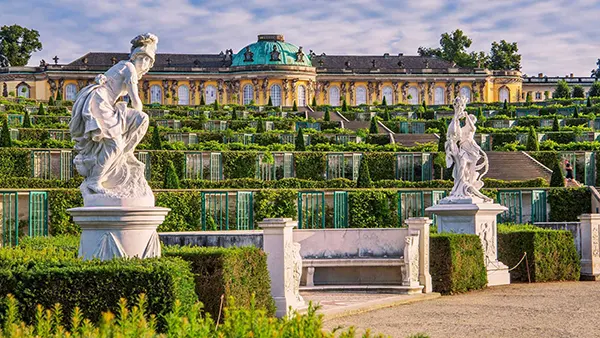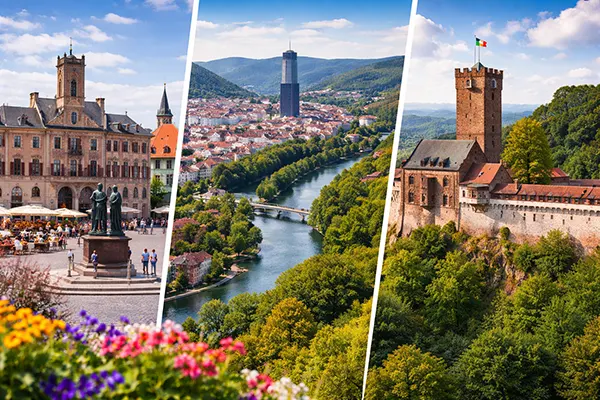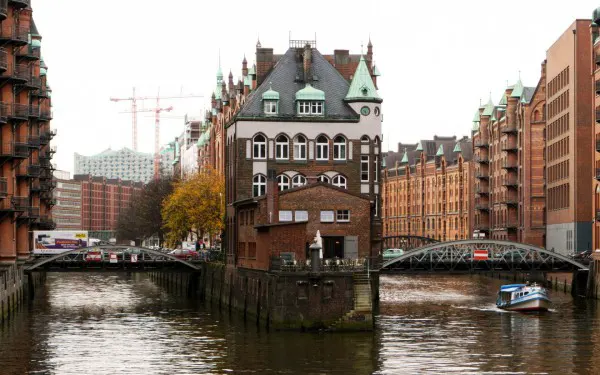
Casino Tourism in Germany 2025: Top Cities for Gaming, Luxury and Culture
Germany in 2025 continues to combine the elegance of classic casino experiences with cultural richness and luxurious travel. The country’s most famous gaming destinations are more than just places to play — they are hubs of history, art, and high-end leisure that attract visitors from across Europe. This article explores the leading German cities where tradition meets modern comfort, making them essential stops for travellers seeking both excitement and refinement.
Historic Casino Cities Worth Visiting
Germany’s casino history dates back to the 18th century, and many venues have retained their architectural grandeur. One of the most recognised names is Baden-Baden, home to the Kurhaus Casino. Often called the “Monte Carlo of Germany”, this establishment blends classical architecture with modern gaming halls, hosting everything from roulette to poker tournaments. Analytical approaches to casino development and entertainment standards are discussed in detail at https://rouletteenligne77.fr/, where modern perspectives on the evolution of gaming environments help better understand current tourism trends.
Another highlight is Wiesbaden, whose Spielbank is among the oldest in Europe. Its refined interiors reflect the charm of the Belle Époque, and the atmosphere is complemented by nearby theatres, wine festivals, and museums. Visitors can spend a day exploring art exhibitions and finish the evening with an elegant gaming session.
Travellers looking for a modern twist on classic entertainment often head to Hamburg. The city’s casino scene is contemporary, but still maintains a touch of old-world class. With its maritime surroundings, art galleries, and premium restaurants, Hamburg is perfect for those seeking both culture and nightlife.
Luxury and Leisure Combined
The casino experience in Germany goes beyond gaming — it integrates wellness, dining, and comfort. Many of the best resorts offer packages that include fine dining menus created by Michelin-starred chefs and spa treatments inspired by regional traditions. Baden-Baden’s Brenners Park-Hotel & Spa, for instance, has become synonymous with refined hospitality and relaxation after a night of play.
Munich, though better known for its art museums and beer culture, has also become a favourite for luxury gaming travellers. Its gaming venues cater to both locals and tourists, with VIP rooms and private events. Meanwhile, the city’s boutiques and historical architecture add to the sense of sophistication that casino tourists appreciate.
In Cologne, casino entertainment often blends with the city’s cultural pulse. The gaming halls are surrounded by concert venues and gourmet dining, creating a seamless transition from leisure to nightlife. The vibrant atmosphere attracts a younger audience, making Cologne a rising star in Germany’s casino tourism map.

Cultural Experiences Beyond the Tables
Casino tourism in Germany is not only about the thrill of the game; it’s also an opportunity to engage with the country’s cultural heritage. Each major casino city offers its own festivals, art fairs, and historic landmarks. For example, Wiesbaden’s Rheingau Wine Festival each August attracts visitors who enjoy pairing fine wine with refined entertainment.
Berlin, though less traditional in terms of casino history, offers a cosmopolitan experience. Its casinos are sleek and modern, while the city’s cultural life — from the Berlin Philharmonic to contemporary art galleries — ensures visitors always have something new to explore. Many high-end hotels in the capital have established partnerships with casino resorts, offering exclusive packages to international guests.
Dresden stands out as a cultural gem that combines baroque architecture with a growing casino scene. The city’s restored palaces and riverside charm provide a stunning backdrop for evening entertainment, attracting visitors interested in both heritage and elegance.
The Future of Casino Tourism in Germany
By 2025, Germany’s casino industry continues to evolve in response to global tourism trends. The emphasis has shifted towards sustainable luxury, with resorts investing in eco-friendly operations and digital innovation to enhance guest experiences. Smart technologies, contactless payments, and curated event schedules now make the casino journey more comfortable than ever.
Government support for cultural tourism also plays a key role. Many states promote casino towns as heritage landmarks, ensuring a balance between economic growth and cultural preservation. This initiative enhances the country’s reputation as a trusted destination for both leisure and responsible entertainment.
Ultimately, casino tourism in Germany remains a unique blend of history, modern comfort, and cultural authenticity. Whether you’re exploring Baden-Baden’s elegance, Berlin’s urban charm, or Wiesbaden’s artistic flair, each city reflects the sophisticated spirit of German hospitality in 2025.



